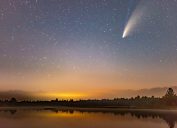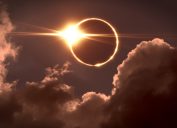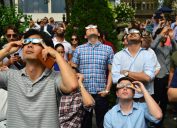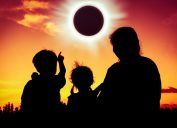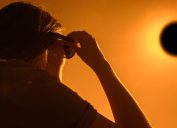Here's What You'll See If It's Cloudy During the Total Solar Eclipse
Experts say even total sky coverage might not ruin the special experience.
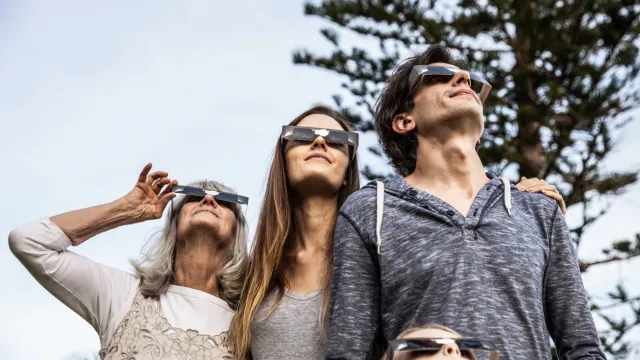
The upcoming total solar eclipse is a unique event that is expected to draw in a multitutde of spectators. Many are even traveling from around the U.S. and the world just to ensure they can get the best possible view of the celestial event—often paying higher-than-average rates for the experience. But even if you do make it into the path of totality, the elements could still complicate things. Read on to see what will happen if it's cloudy during the total solar eclipse.
RELATED: New Star Will "Explode" in the Night Sky—How to See the "Once-in-a-Lifetime" Event.
Weather could be an issue for some people trying to view the total solar eclipse.
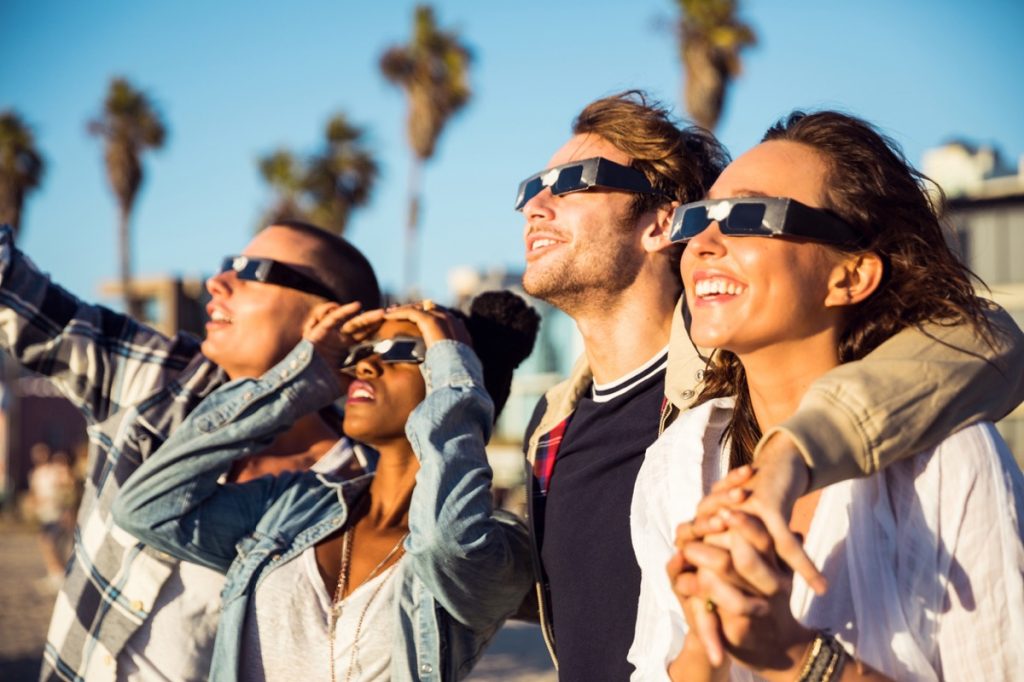
Many people have marked April 8 on their calendars in anticipation of the total solar eclipse, which will be the last visible in the U.S. until 2044. But while you can book travel and make plans to view the momentous occasion, local weather is not guaranteed to cooperate.
Even though it's still too far out from the date to make a traditional forecast, historical data has helped some who are planning to pick a viewing locale where it's less likely to be cloudy. According to 30-year averages, cities along the path of totality can vary significantly in the probability of gloomy conditions, Fox Weather reports.
Data shows that cities on the earlier part of the path are more likely to have an unobstructed view, with San Antonio and Dallas having an average of 51 and 55 percent cloud cover, respectively, on that date over the past three decades. But as the path veers farther north, coverage increases, with Indianapolis and Cleveland both showing 66 percent cloud cover; Syracuse, New York showing 72 percent; and Burlington, Vermont showing 73 percent, per Fox Weather.
RELATED: Explosive "Devil Comet" Could Photobomb the Solar Eclipse—How to See It.
The eclipse might still be relatively visible behind some types of clouds.
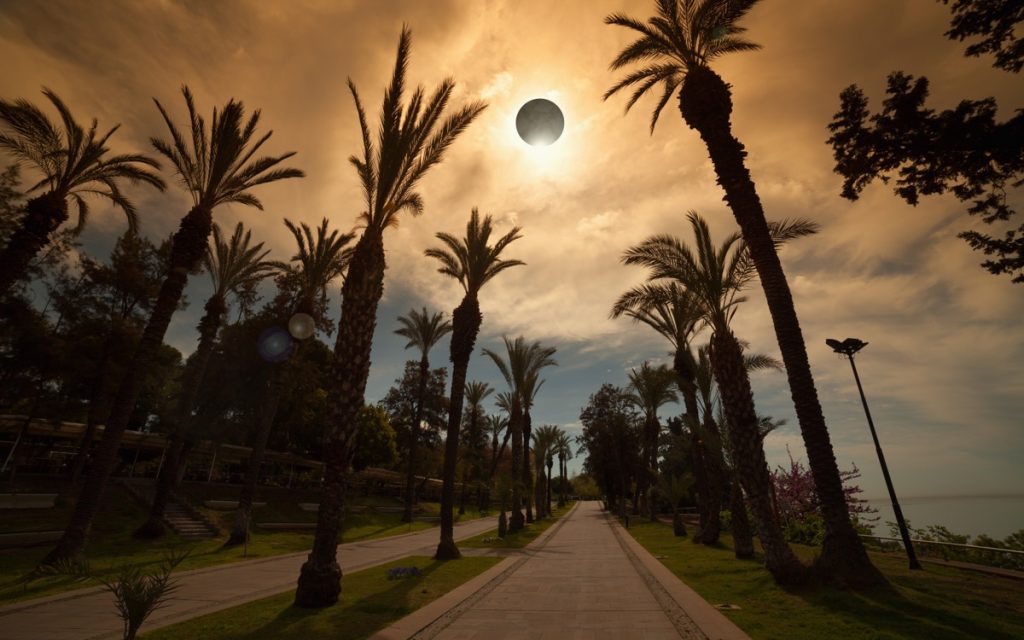
While past data can't fully confirm what to expect on April 8 this year, some are already beginning to wonder what their eclipse experience might be like if it's a cloudy day. However, experts say it's not just whether there are clouds around but also what type of sky coverage is in your area that could ultimately determine things.
Meteorologist Joe Rao described an experience during a total solar eclipse in 1972 in which a sunny summer day was suddenly met with mid-to-high-level clouds in the hour leading up to totality, per Space.com. However, he explained that viewers still caught sight of a "distinctly sharp edge" move in as the moon covered the sun. The clouds' coloring also changed, going from grey to yellow-orange before catching "an arc of ruby red or fuchsia" at the beginning and end of totality.
Rao also added that he and his family were fortunate enough to catch a brief glimpse at totality due to a half-minute break in the clouds. Other experts agree that even less-than-ideal conditions can create a memorable show.
"Instead of being able to see this velvet hole in the sky that you do when it's a sunny day eclipse, what's going to happen in that last one percent of coverage, that last minute before totality, when the moon then completely covers the sun, it'll be a big 'woosh' down to dark, complete dark, midnight dark," Debra Ross, co-chair of the American Astronomical Society's (AAS) Solar Eclipse Task Force, told local Temple, Texas NBC affiliate KCEN-TV. "It's going to be pitch black."
RELATED: Why You Shouldn't Wear Black, White, or Gray During the Eclipse, Science Says.
Lower-lying clouds will make for the hardest viewing—but won't totally ruin the experience.
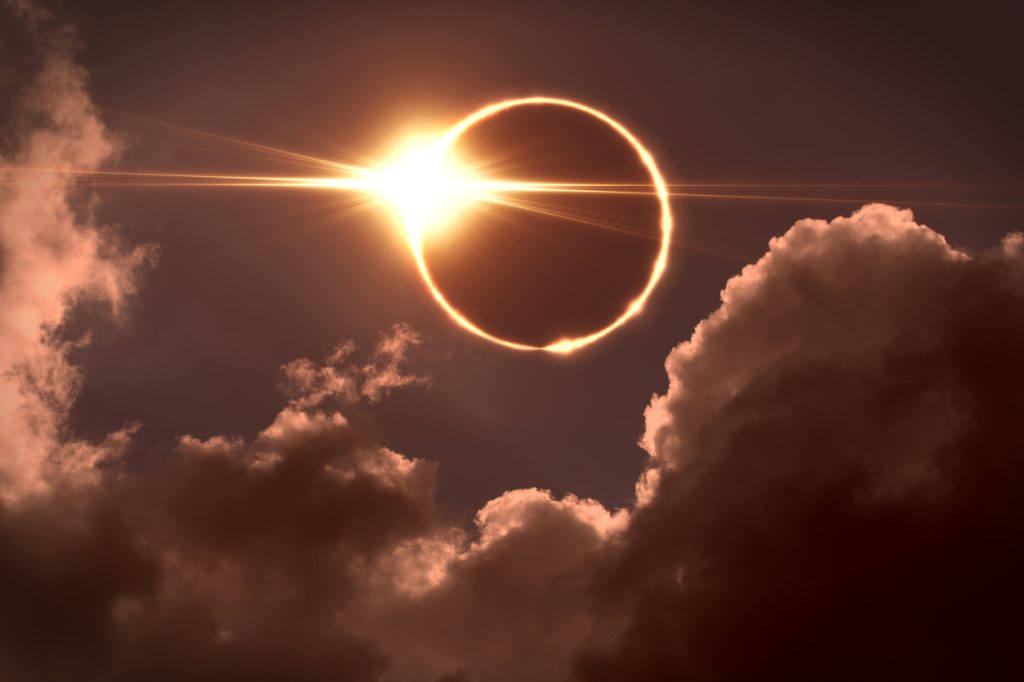
Rao said he experienced another event in which a single errant cloud helped ruin an otherwise clear day during a total solar eclipse in Colombia in 1977. However, it wasn't until December 2021 that he experienced what the event is like with heavy, low, overcast clouds.
He explained that while viewing the event from a ship off the coast of Antarctica, rainy conditions had settled in with "thick, low, flat clouds" covering the sky. Though he still experienced the darkness that comes with totality, he described the eclipse as feeling like being in a lit room and having someone suddenly hit a dimmer switch before bringing the lights back up again. He also noted that he saw no special colors in the sky in this case.
Another expert says that unexpected or inclement weather can sometimes add to the experience.
"Clouds are actually fun," Seth McGowan, president of the Adirondack Sky Center and Observatory in Tupper Lake, New York, told North Country Public Radio (NCPR). "During an eclipse, the changes in the atmosphere are so severe that oftentimes it results in thunder and lightning, or hail, even. It still gets pitch dark, but you get these amazing colors around the horizon, so the only element that's missing during a total eclipse under clouds is the actual visual of the corona. I will say that there's nothing that can beat that."
He also added that seeing the edge of the eclipse's shadow "rushing at you at 2,500 miles an hour" is a sight in and of itself. "You can't beat that. It's like something out of a sci-fi movie. It looks like you're being invaded by aliens," he said.
Experts say the experience will still be worthwhile despite the weather conditions.
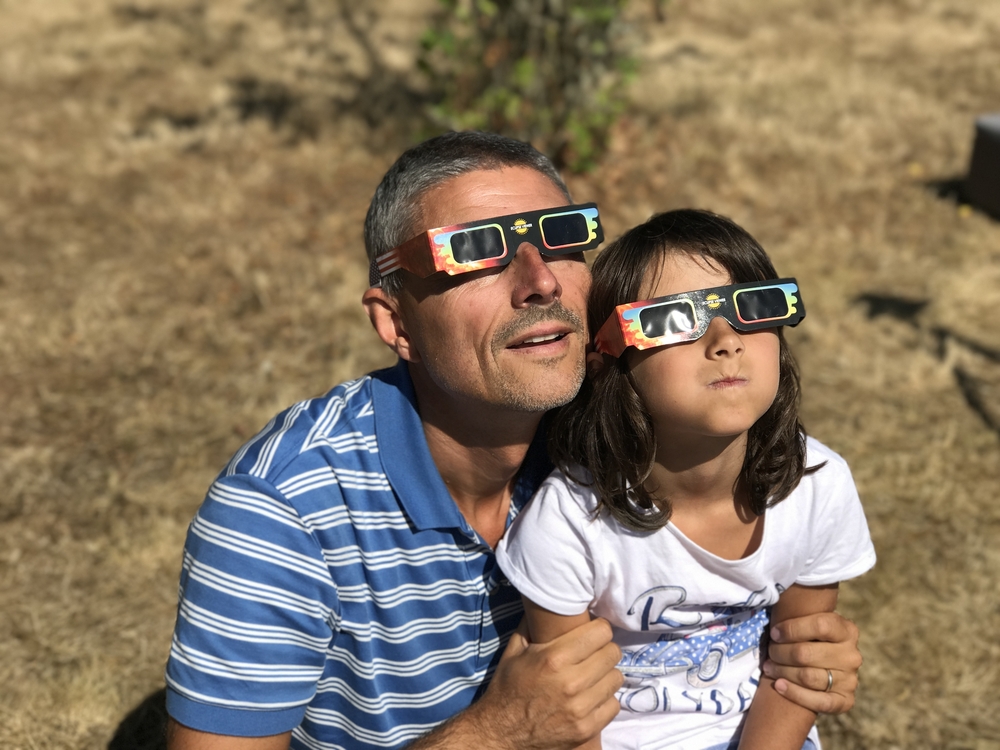
Many people undoubtedly have high hopes of watching the moon pass in front of the sun in unobstructed skies. But even if weather conditions don't cooperate, experts agree it won't completely ruin the event.
"It is profound even in clouds," Ross told KCEN-TV. "Not quite the spectacle, but definitely a profound, eerie, mysterious, beautiful bonding experience."
McGowan agrees, saying that sky coverage doesn't stop an eclipse from being "a phenomenal experience" and "equal in magnitude" for those watching in clear conditions. He also urges people not to ditch their plans because of a poor forecast.
"Just because you think it's going to be cloudy where you're headed, don't not go," he told NCPR. "Don't stay inside, because the experience is equal, just in different ways. You may not see the corona, but you're going to have an experience that you just wouldn't have anywhere else or in any other way. The clouds would be unwelcome, but we'd make our peace with it because the trade-off is equally mystifying."

